Moderna, Pfizer and Astrazeneca vaccines: protection and adverse reactions
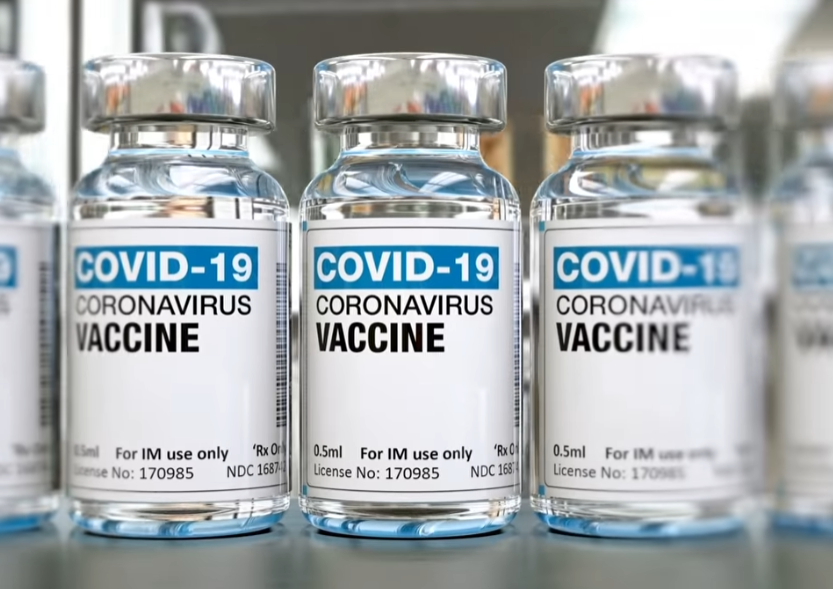
Administration, protection and adverse reactions. What is written in the informed consent on vaccines from Moderna, Pfizer and Astrazeneca.
The anti Covid-19 vaccination campaign continues. Doctors and health personnel have passed to vaccinate with the Pfizer-Biontech vaccine and that of Moderna even the over eighty-year-olds, Astrezeneca's drug is inoculated to professors, soldiers and policemen who are less than 55 years old.
It is advisable to arrive a few minutes early for the appointment. The patient, in fact, will have to fill in the consent form, which describes the efficacy, methods of administration, ingredients and side effects. The university hospital of the PoliclinICo di Bari made a single informed consent, for all three vaccines, explaining the differences.
Here is what it says.
THERAPEUTIC INDICATIONS
All three vaccines are administered with the aim of preventing Covid-19 disease caused by the SARS-CoV-2 virus. The vaccines "COVID-19 Vaccine Moderna" and "Pfizer-BioNTech Covid-19", explains the note, "induce our body to activate a protective mechanism (such as the production of antibodies) capable of preventing entry into our cells of the virus responsible for Covid-19 and therefore to prevent the onset of the disease ".
The “Covid-19 Vaccine AstraZeneca” vaccine, on the other hand, “stimulates the body's natural defenses (the immune system) to produce antibodies and specialized white blood cells that act against the virus”.
THE ADMINISTRATION
There are three methods of administration. Moderna's vaccine requires 2 doses, at least 28 days apart. The Pfizer-BioNTech vaccine requires 2 doses, at least 21 days apart. The AstraZeneca vaccine requires 2 doses, 4-12 weeks (28 to 84 days) apart.
PROTECTION
The protection times are also different. It can take up to 14 days after the second dose of the Covid-19 Vaccine Moderna vaccine to develop protection against Covid (and is 95% effective). Shorter lead times for Pfizer-Biontech vaccine: Patients could develop protection within 7 days after the second dose of the vaccine, with 95% effectiveness.
The protection of the “Covid-19 Vaccine AstraZeneca” vaccine, explains the note, begins about 3 weeks after the first dose. “Vaccinates may not be fully protected until 15 days after the second dose is given. The Covid-19 Vaccine AstraZeneca vaccine may not fully protect everyone who receives it. In fact, the efficacy estimated by clinical trials (after two doses of the vaccine) is 59.5% and could be lower in people with comorbidities and immune problems. Even after administering both doses of the vaccines, it is recommended to continue to strictly follow the recommendations of the local public health authorities, in order to prevent the spread of Covid-19 ”.
ADVERSE REACTIONS
While the most common adverse reactions are similar to the three vaccines (fatigue, pain, redness, fever, nausea and headache), there are several serious reactions that cause the drugs. Acute peripheral facial paralysis and swelling of the face, as well as severe allergic reactions, have been reported for the Moderna vaccine, according to the consensus. The latter have also been reported in Pfizer-Biontech's case, as well as swelling of the face, tongue or throat, difficulty breathing and hives.
In the case of Astrazeneca, feeling of fainting, changes in heartbeat have been reported;
shortness of breath; wheezing; swelling of the lips, face or throat; hives or rash.
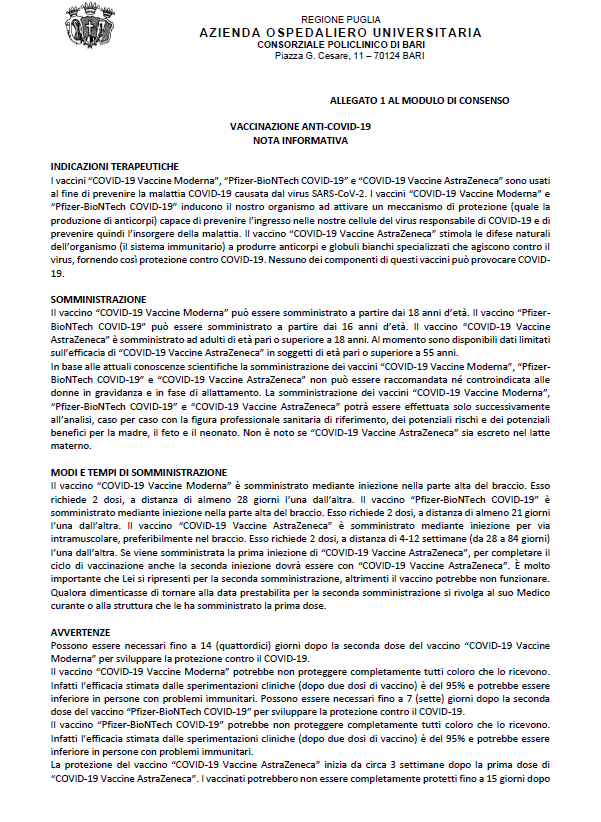
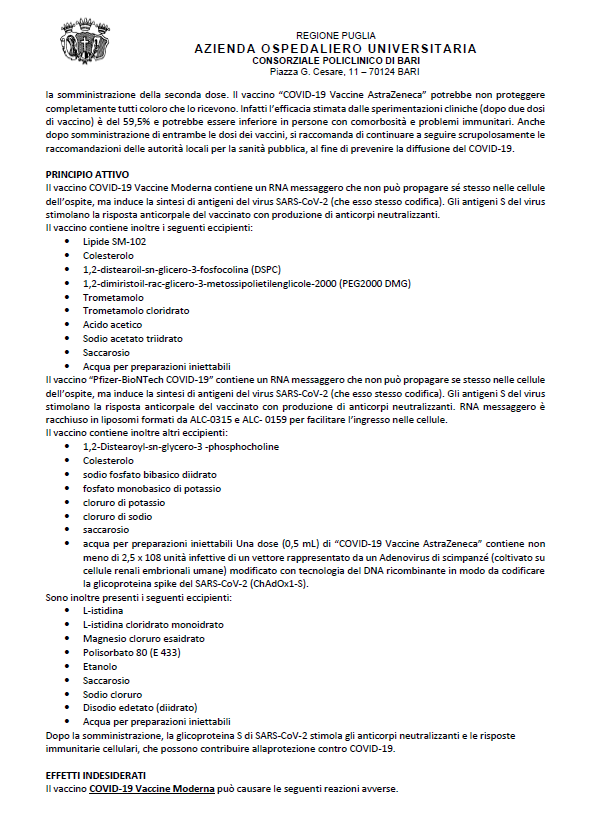
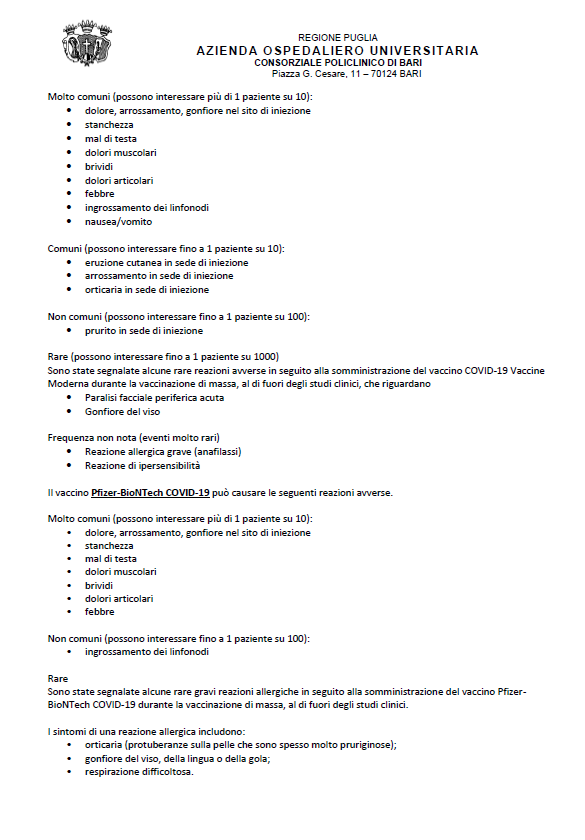
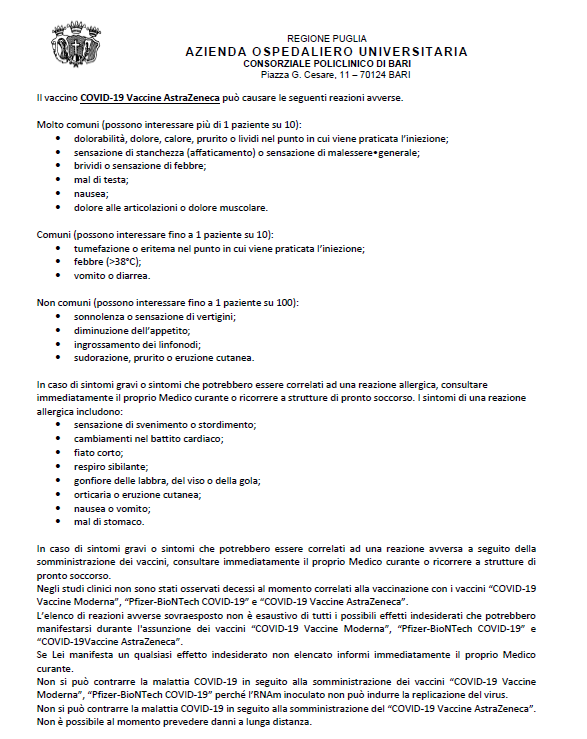
This is a machine translation from Italian language of a post published on Start Magazine at the URL https://www.startmag.it/sanita/vaccini-moderna-pfizer-e-astrazeneca-protezione-e-reazioni-avverse/ on Sat, 06 Mar 2021 16:32:42 +0000.
